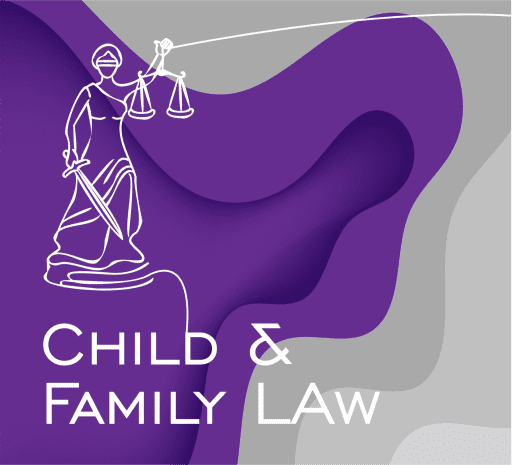What is Parental Responsibility?
Parental responsibility is a concept that covers the rights, duties, powers, and authority that parents have in relation to their children. Many parents wonder, “What does parental responsibility include?” and “What are my rights as a parent?”In this article, we explore the full extent of parental responsibility under the Children Act 1989 (ChA 1989), the legal duties involved, and how it can affect everyday decisions about your child’s upbringing.
What Does Parental Responsibility Mean?
Under the Children Act 1989, parental responsibility involves all the legal rights and responsibilities that a parent has concerning their child’s welfare, education, and overall well-being until they reach adulthood. Here’s what parental responsibility means for you:
- Providing a Safe and Stable Home: Parental responsibility includes the duty to provide a secure and stable home for your child. This involves choosing where your child lives and ensuring their living conditions are suitable for their development.
- Making Key Decisions: Parents with parental responsibility have the right to make important decisions regarding their child’s upbringing, including their education, religious upbringing, and medical care.
Key Aspects of Parental Responsibility
1. Providing a Home
One of the core duties of parental responsibility is to ensure your child has a safe and suitable place to live. If there is more than one person with parental responsibility, removing the child from the UK without the other’s consent or a court order could be a criminal offense.
2. Protecting and Maintaining the Child
Parents have a legal duty to protect their children from harm and ensure their well-being. This is reinforced by laws like the Children and Young Persons Act 1933, which criminalizes actions that could cause undue suffering or injury to a child.
3. Discipline and Boundaries
Discipline is another important aspect of parental responsibility. According to the Gillick competence principle, as children grow, they become more capable of making their own decisions, which means the level of parental control adjusts over time.
4. Ensuring Education
Parents must ensure their children receive a full-time education appropriate to their needs, as required by the Education Act 1996. This applies to children between the ages of 5 and 16, whether through school attendance or alternative education methods. Failure to do so can result in legal consequences, including fines.
5. Religious Upbringing
Parents also have the right to influence their child’s religious upbringing. However, if there is a disagreement between parents about religious practices, the courts may intervene with a specific issue order or prohibited steps order. The key focus will always be on the child’s best interests.
Can Parental Responsibility Change?
The level of parental responsibility may change depending on various factors, such as the child’s age and who holds the responsibility. Even as children grow older, parents retain a significant role in guiding them. As Munby P noted in Re H-B (Children) (Contact): “Parental responsibility does not shrivel away merely because the child is 14 or even 16 years old.”
When Can Parental Rights Be Terminated?
The termination of parental rights is a serious legal action and is only considered in situations where it is deemed to be in the best interests of the child. Here are the primary grounds under which parental rights may be terminated:
1. Severe Abuse or Neglect
- Physical or Emotional Abuse: If a parent has subjected the child to severe physical, emotional, or sexual abuse, the court may terminate their parental rights to protect the child’s safety.
- Chronic Neglect: A pattern of neglect, such as failing to provide basic necessities like food, shelter, or medical care, can lead to the termination of parental rights.
2. Abandonment
- Failure to Maintain Contact: Parental rights may be terminated if a parent has willfully abandoned the child or failed to maintain contact for a significant period. This is often defined as the parent having no meaningful interaction or communication with the child for a specified time.
- Lack of Financial Support: In some cases, the failure to provide financial support or fulfill other parental obligations may be considered grounds for termination, especially if combined with a lack of contact.
3. Long-Term Mental Illness or Substance Abuse
- Inability to Provide Care: If a parent has a mental illness, addiction, or substance abuse problem that prevents them from adequately caring for their child over a long period, it may be grounds for termination. The court will require evidence that this condition poses a threat to the child’s safety and well-being.
4. Conviction of a Serious Crime
- Violent Crimes: A parent’s conviction for violent crimes, especially those involving children, may result in the termination of their parental rights.
- Criminal Activity Affecting the Child: If a parent’s criminal behavior directly impacts their ability to care for their child (such as drug trafficking, child exploitation, or domestic violence), it can be a reason for the court to consider terminating parental rights.
5. Failure to Complete Court-Ordered Programs
- Rehabilitation Requirements: If a parent is ordered by the court to complete specific programs (such as drug rehabilitation, anger management, or parenting classes) and fails to do so, it may lead to the termination of parental rights. This typically happens when the court believes the parent’s inability to complete these programs poses a risk to the child.
6. Voluntary Relinquishment
- Parent’s Choice: In some situations, a parent may choose to voluntarily give up their parental rights, often as part of an adoption process. This is typically done through a legal agreement and requires court approval.
7. Step-Parent or Foster Parent Adoption
- Adoption Requests: When a step-parent or foster parent wants to adopt a child, and the biological parent is uninvolved or consents, the court may terminate the biological parent’s rights to facilitate the adoption. This often involves proving that the biological parent has not been present or active in the child’s life.
Important Considerations in Terminating Parental Rights
- Best Interests of the Child: The court’s primary consideration is always what is in the best interests of the child. The child’s safety, stability, and emotional well-being are central to the court’s decision.
- Evidence Requirements: Terminating parental rights requires substantial evidence to support the claims made against the parent. This may include testimonies, documentation, or expert evaluations.
- Legal Process: Termination is not automatic and requires a formal legal process, including a court hearing where both parties can present their arguments.
Frequently Asked Questions About Parental Responsibility
Can Parental Responsibility Be Shared or Transferred?
While parental responsibility cannot be transferred, it can be shared or delegated. For instance, grandparents or guardians may be granted specific parental responsibilities if it is in the child’s best interest.
What if I Disagree with My Co-Parent?
Disputes between parents can be resolved through legal channels, such as applying for a specific issue order or prohibited steps order. This is especially relevant when disagreements arise over matters like education or relocating with a child.
How Aristone Solicitors Can Help
Navigating the complexities of parental responsibility can be challenging, especially during family disputes or when applying for court orders like prohibited steps orders. At Aristone Solicitors, we are committed to helping you understand your rights and duties as a parent. Our experienced family law team is here to guide you through every step, ensuring the best outcome for you and your child.
Whether you need help applying for a parental responsibility order or resolving a dispute with a co-parent, contact us today for expert advice. We offer tailored legal support to address your unique situation and ensure that your child’s best interests are always at the forefront.
Get Expert Advice on Parental Responsibility
If you need advice or assistance in understanding parental responsibility and your legal rights, , please don’t hesitate to reach out. Contact us today to discuss how we can support you during this challenging time.
- Luton, dial +441582 383 888.
- London, dial +442034 393 888.
- St Albans, dial +441727 519 888.
Alternatively, if you’re reaching out outside of our business hours (9am to 5.30pm Monday to Friday, excluding bank holidays), or prefer written communication, please use our contact form. We will respond promptly within 1 working day.



